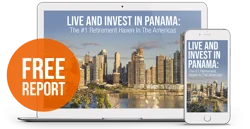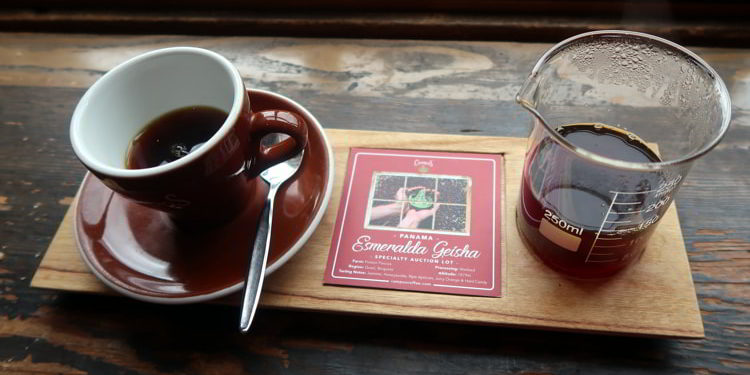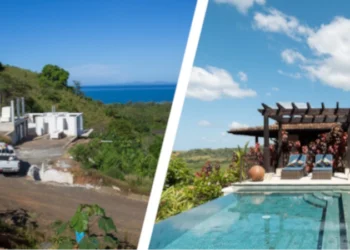Panama is known for growing the best of the best when it comes to coffee. Rightly so… the Esmeralda Geisha (often called Geisha) varietal of coffee was transplanted from the southwestern mountains of Gesha, Ethiopia, to Panama in the 1960s and has been making a name for itself ever since.
But how familiar are we—the average consumers—with Panamanian coffee?
Especially if shelling out US$7 for a cup of primo Geisha… though it makes for a wonderful gift… is not practical for a daily ritual, then you should get to know and appreciate Panama’s coffee scene. (Yes, Geisha costs that much… even here in PTY.)
Aside from a seasonal blend slapped on a Starbucks bag or a big chain supermarket’s gourmet line, walking down an aisle in a U.S. grocery store won’t turn up much in the way of Panamanian coffee… You’ll find the big household brands come from the likes of Costa Rica, Kenya, and Ethiopia, but this country just isn’t a big coffee exporter.
Here in Panama, however, the coffee aisle is quite the opposite. You’ll only find Panamanian coffee.
And not just bag after bag of Esmerelda Geisha. You can find the full gamut of coffee, from dirt cheap to occasional treat and everything in between…
Coffee here is homegrown… and kept at home.
Home Is Where You Hang Your Coffee Mug
Sixty-two coffee brands are offered in a typical supermarket… and if, like some of us folks here at Live and Invest Overseas, you grind your way through a pound a week, you have a year-and-change’s worth of opportunities to find your go-to brand.
On that note, we’ll remind readers that taste is a matter of taste. One man’s trash is another man’s treasure… or trash. A 12-pack of single-serving packets of Café Dorado ground beans costs US$1.30… after your first sip you may wonder if you actually bought coffee. The flavor profile is pretty earthy; it tastes like dirt.
If the equivalent of Maxell House or Folgers is all you need dripping from that machine on your counter, look no further than Durán or Café Gilka. They come pre-ground and are roasted to the same degree as their American counterparts, too.
Just a notch above those brands is Palo Alto. Although a pre-ground bag only costs US$3.25, it has a lemon acidity to it that still comes through along with spice and cocoa notes.
Moving up on the home-brewing scale of taste is Bajareque Coffee from Boquete. Just squeezing a bag of the whole-bean blend releases this mouth-watering, fruity aroma. Citrus and honey come to mind in the cup. Always check the delivery date to make sure you are taking the freshest beans home.
Janson Coffee sells a chocolatey, spice variety of bean in pre-ground and whole-bean bags. They are a cut above the others because they also make their award-winning Geisha coffee available for about US$15 a pound. The Meyer lemon, jasmine, and black tea smoothness justifies the price tag which doubles to US$30 if you want to buy it outside of Panama.
Making It Personal
Reading the labels on Panamanian coffee bags is like getting a history/geography lesson on the province of Chiriquí. You’ll learn about the pioneers in the region and their family stories in highland coffee hubs like Boquete and Volcán.
With labels like Durán, Suárez, and Janson, you realize brand names are actually surnames. Coffee is being grown by real people who have not allowed mass production to eliminate them from the process.
These farmers and families even invite you for a tour. Checking out a farm in person or online can really enhance your experience when you pour your morning brew.
Remembering that the number of different coffee brands in Panama is at least 62, you could explore the wonders of coffee land and its people for quite some time.
Get Your Free Panama Report Today!
Simply enter your email address below and we'll send you our FREE REPORT - Live And Invest In Panama: The #1 Retirement Haven In The Americas.
Here’s an idea for a coffee tour you can sign up for:
Boquete Outdoor Adventures
Main Street
Boquete
Website: www.boqueteoutdooradventures.com
Help, Where’s The Nearest Coffee Shop?
Despite the coffee growing in its own backyard, Panama does not have a strong Café culture…
If you want a quick fix of caffeine or a chance to sip some java while reading the paper, a fonda or kiosk is the local’s first choice.
A cup of black coffee is 50 cents in Panama City and 40 cents in the interior—buyer beware—when it comes to coffee, you get what you pay for.
Usually it will be served up diner-style along with your meal, the food being what’s prominently featured on the menu. Did we mention the portion size is Dixie Cup?
In other words, establishments that specialize in or obsess over serving you that perfect cup every time are hard to come by.
There are some pleasant surprises along the way, though. Throughout Panama City, in places like Rey Supermarkets, Multiplaza Mall, and Albrook Mall, you’ll find Café Durán stores equipped with a pretty versatile espresso bar.
Anything from Café cortados to Café Americanos and lattes are on offer for reasonable prices: An espresso will run you US$1.60. That’s a steal for a hand-pulled shot of black gold.
Coffee Snobs Unite
Located in Casco Viejo on the southern end of Panama City are two high-end Cafés that have embraced the art and science of serving coffee.
Bajareque Coffee House and Café Unido are roasters that serve artisanal coffee grown on a few estates in Panama. Coffee in these spots is made by the cup, using a scale to measure the beans and a timer to ensure the grinds do not steep for too long.
As you can imagine, the price is steeper. Pour-overs at Café Unido start at US$3.25 while drinks from the espresso bar start at US$2.50. If you want coffee like it is served in New York, San Francisco, London, or any other first-class cosmopolitan city… you’ll pay the same price for it in this first-class cosmopolitan city.
For those not looking for the upper end of the spectrum, New York Bagel in El Cangrejo is one of the few places that serves bottomless cups of coffee (and other beverages). Bring your laptop or a book and sit for as long as you’d like while enjoying a basic cup of Joe… just don’t expect too much on the flavor side.
Truly A Heaver Drinker’s Paradise
Panama is a fertile land that quietly grows enough coffee to keep every man, woman, and child awake indefinitely. Explore Chiriquí’s highlands, or any mountain in the interior, or take a stroll to your nearest coffee house or grocery store, and you’ll be on your way to knowing what el Café de Panamá is all about.
Matthew Pond
Panama Insider

















